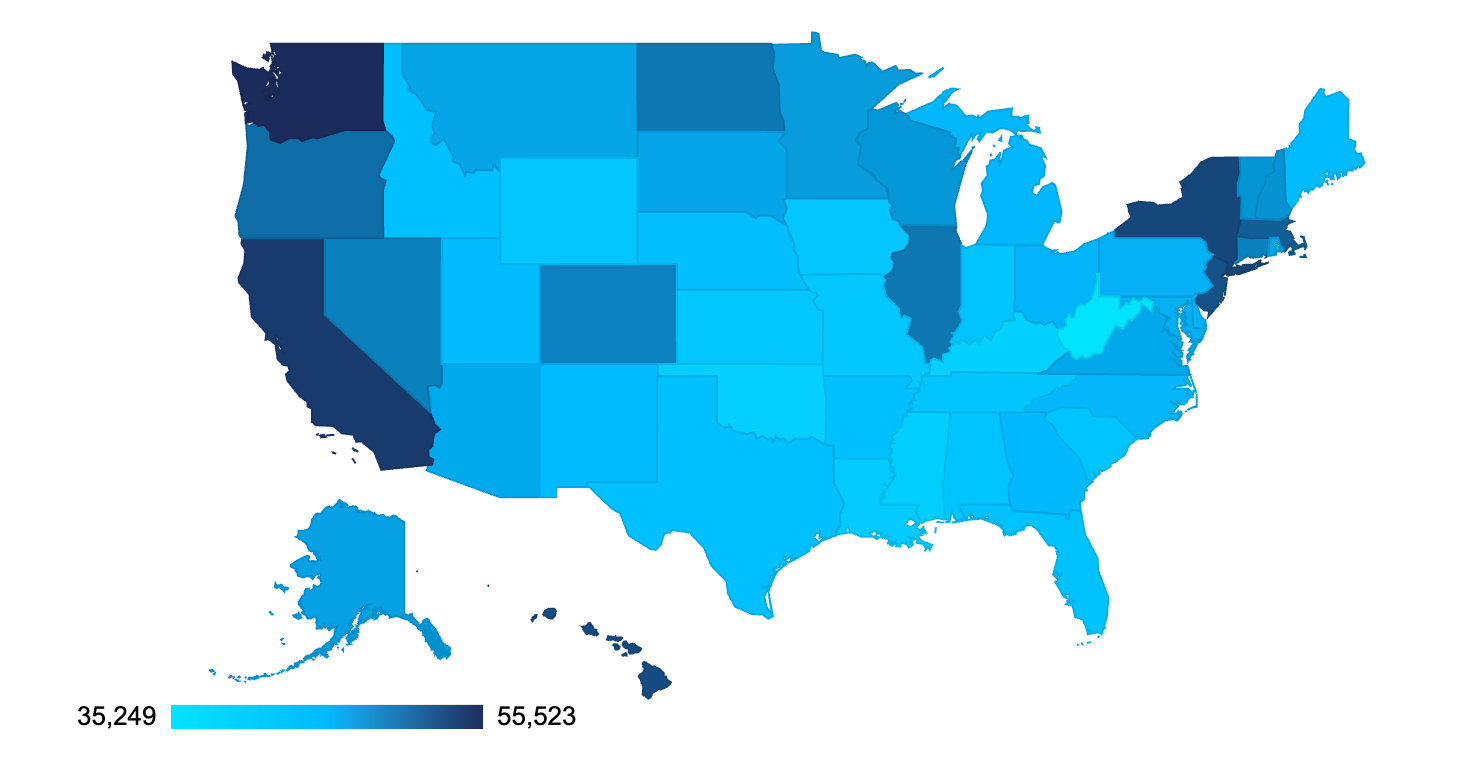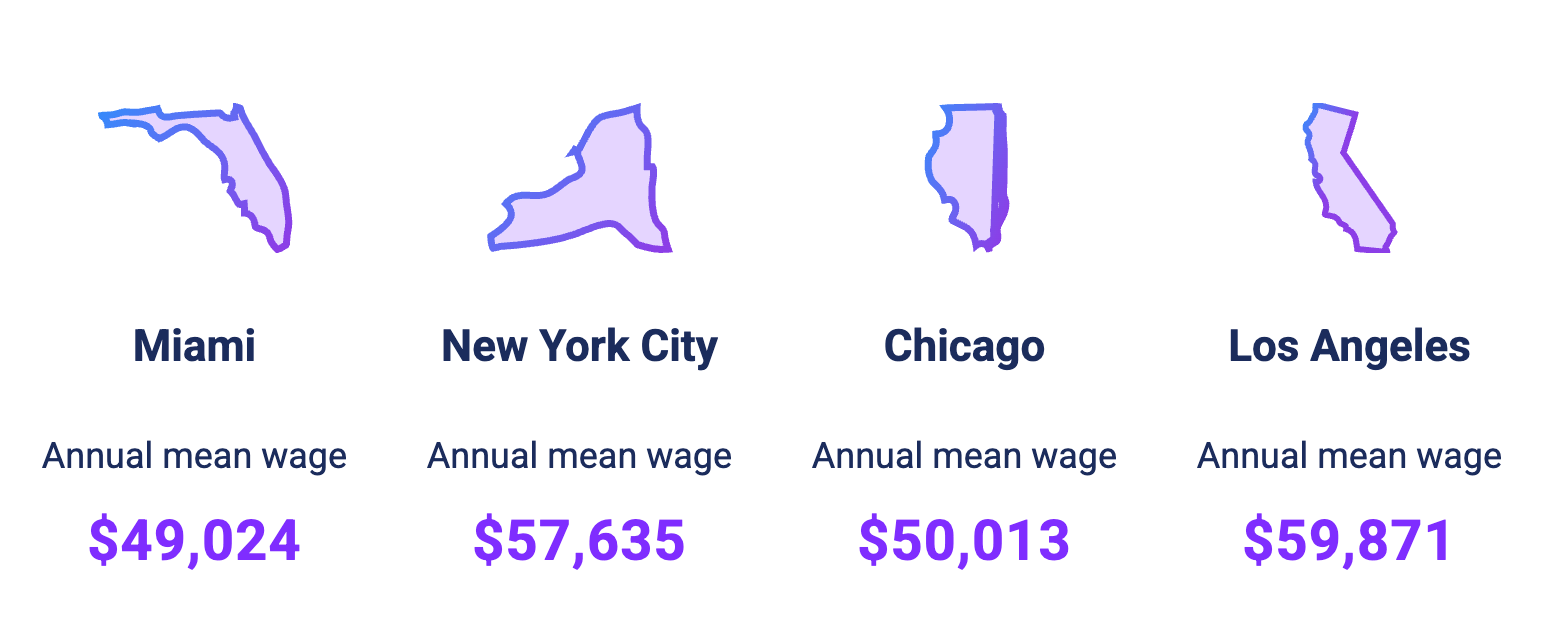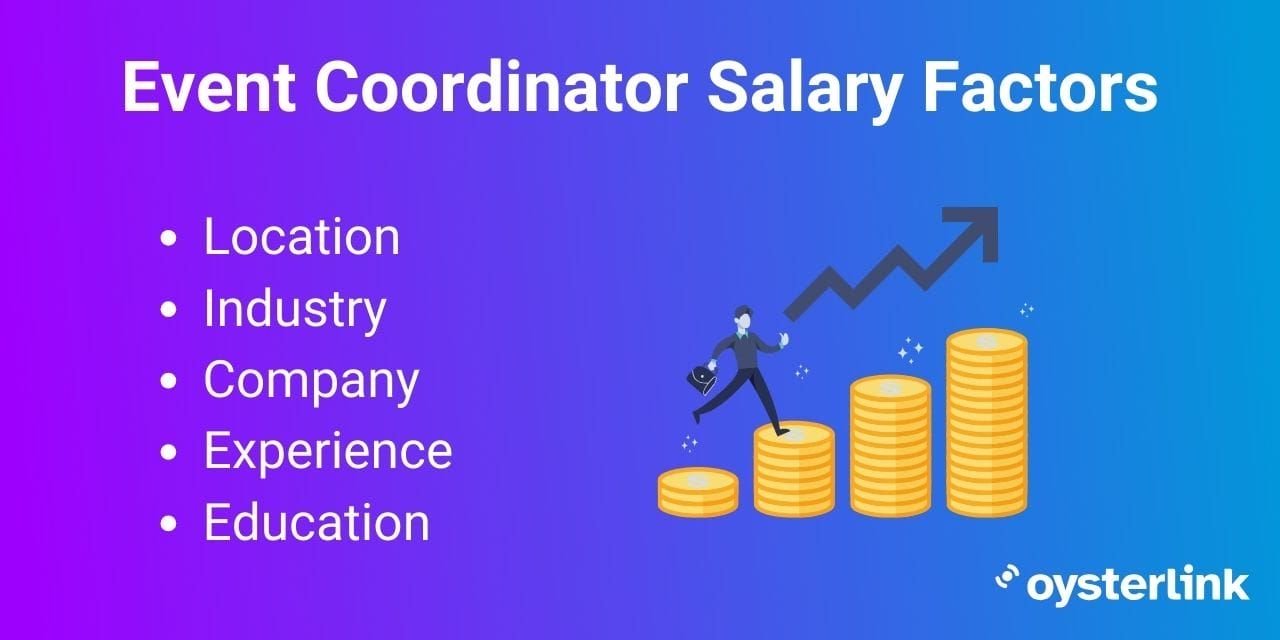Event Coordinator Salary
What Is the Monthly Salary for Event Coordinators?
Event Coordinators in the U.S. earn an average of $4,530.17 a month.
What Is the Hourly Wage for Event Coordinators?
Event Coordinators working in the U.S. earn $26.14 per hour on average.
How Much Do Event Coordinators Make per Week?
The average weekly pay for an Event Coordinator in the United States is $1,045.60.
Do Event Coordinators Receive Bonuses or Commission for Large Events?
Yes, many Event Coordinators receive bonuses or commissions for successfully managing large or high-profile events. These incentives are often tied to:
- Event Size and Revenue: Coordinators managing large-scale events, such as corporate conferences, weddings, or festivals, may receive bonuses based on the event’s budget or profitability. Bonuses can range from 5% to 15% of the event's total revenue or profit.
- Performance-Based Bonuses: Coordinators who consistently meet or exceed client expectations, secure high-profile contracts, or bring in repeat business are often rewarded with performance bonuses.
- Client Satisfaction: In some cases, bonuses are linked to client feedback and post-event surveys. High satisfaction ratings can lead to monetary rewards or promotions.
- Upselling and Additional Services: Coordinators may receive commissions for upselling services, such as adding premium décor packages, entertainment, or luxury catering options. This commission can add $500 to $5,000 per event, depending on the scale.
- Annual Bonuses: Full-time Event Coordinators at larger companies often receive end-of-year bonuses that reflect overall company performance, sometimes equating to one or two months' salary.
Event Coordinators working in luxury event planning, corporate conferences and entertainment tend to receive the highest bonuses, while those in non-profits may receive lower or no bonus incentives.
How Does Freelance Event Coordinator Pay Compare to Full-time Positions?
Freelance Event Coordinators often have the potential to earn more per event than their full-time counterparts but face income variability. Here's a breakdown of the differences:
- Freelance Pay: Freelancers typically charge between $50 to $150 per hour or $2,000 to $10,000 per event, depending on the event size and complexity. High-end freelance coordinators specializing in corporate galas, luxury weddings, or large-scale festivals can earn upwards of $15,000 per event.
- Full-Time Pay: Full-time Event Coordinators in the U.S. earn an average annual salary of $54,362. While this provides stability, the hourly equivalent often ranges from $20 to $35.
- Income Fluctuation: Freelancers experience income peaks during wedding season (spring/summer) or holiday events, but slower months can lead to income dips. Full-time employees enjoy consistent paychecks and benefits year-round.
- Flexibility vs. Stability: Freelancers have more control over their schedules and can take on multiple clients simultaneously, boosting their earnings. Full-time coordinators benefit from steady workloads, job security, and company-sponsored perks (health insurance, 401(k), etc.).
- Expenses: Freelancers must cover their own marketing, insurance, and travel costs, whereas full-time Event Coordinators typically have these expenses reimbursed.
Key Insight: Freelancing is ideal for experienced Event Coordinators who have established clientele and industry connections, while full-time roles are better suited for those seeking consistent pay and career growth within a structured organization.
Event Coordinator Salary Averages Across the US
The map below shows what you can expect for your Event Coordinator salary in all 50 states, plus the District of Columbia.

[Calculated using ZipRecruiter, Indeed, Glassdoor, Salary.com and Talent.com data]
Which States Offer the Highest Pay for Event Coordinators?
Washington has the highest average Event Coordinator salary at $55,523 per year. California is a close second at $54,487 per year.
West Virginia offers the lowest annual salary at $35,249 per year. Kentucky is the second lowest, with an average of $39,792 per year.
Event Coordinator Salary in Larger US Cities

[Calculated using ZipRecruiter, Indeed, Glassdoor, Salary.com and Talent.com data]
Out of these four larger cities, Los Angeles offers the most for Event Coordinators with an average annual salary of $59,871. Meanwhile, Miami's annual salary for Event Coordinators is the lowest out of these four cities at $49,024.
Factors that Affect Event Coordinator Salary
Lots of factors can influence how much you earn in your job as an Event Coordinator. Here are some of the most common ones.
Industry and company
The type of company you work for as an Event Coordinator plays a major role in your salary.
Companies that organize entertainment and media events pay the most, as do companies that put on sporting events. Think of film and TV premieres, award ceremonies, live shows and concerts, as well as fashion shows.
Companies that organize local events, such as weddings, conferences and seminars, typically offer lower salaries for Event Coordinators. Non-profit organizations typically pay Event Coordinators the least, but that is to be expected.
If you're interested, the best way to find an open position in this role is to look at Event Coordinator jobs that will match your skills and requirements.
Experience and education
Having relevant experience is the most valuable thing you can have when applying for Event Coordinator jobs. A proven track record of managing and overseeing events successfully will go a long way toward landing you that new job.
For this role, most employers want a candidate with a bachelor's degree or higher. Ideally, you should have a degree in public relations, hospitality, marketing, communications or business.
If you're interested in seeing what employers typically look for when hiring for this position, there's more info on our Event Coordinator job description page.
Location
Living costs vary from state to state and so do Event Coordinator wages. Louisiana and Mississippi are two states with lower costs of living, so it perhaps isn't surprising that they are among the top 10 states that offer the lowest average salaries for Event Coordinators.
Washington, California and New York are notoriously expensive to live in, so it's almost a given that they'd top the charts for Event Coordinator salaries.

Non-Monetary Event Coordinator Perks and Benefits
Even though a competitive salary is what potential applicants look for in a job advert the most, non-monetary perks can sometimes be just as enticing.
Event Coordinators hired full-time typically get healthcare insurance and 401(k) plans. Paid time off and parental leave are often included with any Event Coordinator job, but their duration depends on the company offering them.
Labor Laws and Taxes for Event Coordinators
As an Event Coordinator, you need to be aware of the minimum wage, overtime pay and paid leave laws in your state. Before starting any job, you should check the labor laws in your state to avoid headaches.
Estimating Your Take-Home Pay
If you’re an Event Coordinator working in the U.S., our Paycheck Calculator will help you easily calculate your take-home pay.
Event Coordinator Salary Compared to Similar Careers
Methods We Use To Collect Our Salary Data
To give you accurate information, we collect our salary data from sites of government agencies like the Bureau of Labor Statistics. When the bureau doesn't have the needed information or if we feel more data is needed, we also look into estimates from various job search sites. On OysterLink's methodology page, you can see all of the sources we use and trust.
